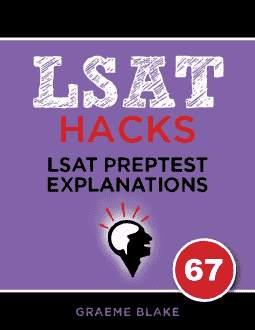QUESTION TEXT: People often praise poems for their truth. But to…
QUESTION TYPE: Role in Argument
CONCLUSION: It’s misguided to praise a poem for its truth.
REASONING: Most common beliefs are true. Poetic excellence must be something rare, not common.
ANALYSIS: This is a tricky question because the final sentence uses the word ‘must’ which is often used in conclusions. But the final sentence is not a conclusion. In this case, the word ‘must’ just indicates a necessary condition. Whatever quality is praiseworthy in poems is necessarily rare.
To find the conclusion, ask yourself if a statement is supported by the other statements, or instead supports other statements. A conclusion is supported, and doesn’t support other statements.
The statement in question is a premise supporting the conclusion. The main idea is that it’s wrong (‘misguided’) to think that truth contributes to aesthetics. Claiming that an idea is ‘wrong’ is usually an indication of the main conclusion.
___________
- The conclusion must be supported by the other statements. But the second sentence doesn’t support the final sentence. Instead, the final sentence supports the second sentence.
- CORRECT. The other premise is the second to last sentence. Together they show that people are praising poems for something that is common, not rare. Common things aren’t a basis for poetic excellence. This supports the conclusion that praise for poetic truth is misguided.
- The statement isn’t good enough on its own. We need the help of the second to last sentence which tells us that truth isn’t rare.
- ‘Background information’ is usually data, such as ‘most poems use truth’. This statement is a rule about what must be praiseworthy, and it’s definitely relevant.
- The argument doesn’t say why commonplace elements of poems aren’t praiseworthy.


Hey Graeme or Lucas,
This question – as with some others – really tripped me up because of its convoluted stimulus. How can I overcome questions that I find really difficult to follow?
Review them extensively after the fact, break down the logic, and look up any words you’re unsure about. Then put them on a list to repeat later and aim to break it down in timed conditions. This builds practice for future questions.